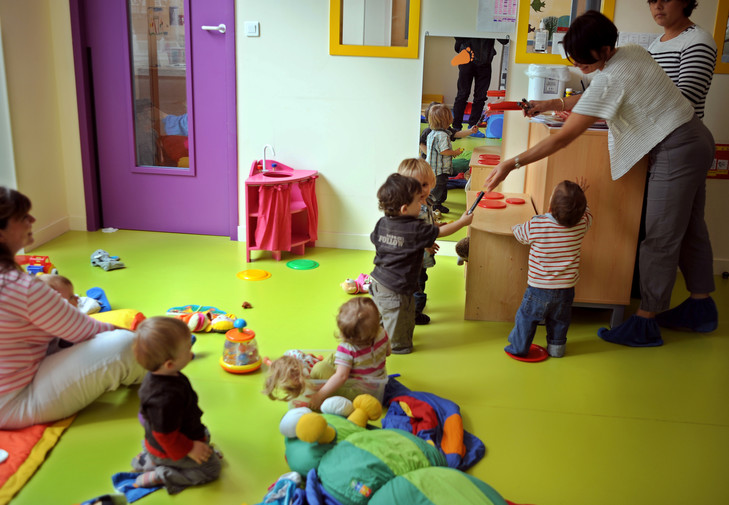By: Valerie Strauss
Reporter
Every now and then, critics of preschool will come out with something saying that there is no research showing that it has positive long-term effects on young children. W. Steven Barnett, founder and senior co-director of the National Institute for Early Education Research at Rutgers University, has debunked that repeatedly, such as here and here, and now he is back with a post about how quality preschool programs can improve the health of students.
Barnett’s research includes studies of the economics of early care and education, including costs and benefits, the long-term effects of preschool programs on children’s learning and development, and the distribution of educational opportunities. He has authored or co-authored more than 200 publications and was recently named as one of the 75 most influential education researchers in the United States, according to the Education Next journal.
It’s February — which means by now, 80 percent of New Year’s resolutions to eat better and exercise more are already abandoned.
It’s no surprise many of us make New Year’s resolutions to improve our health, given that two-thirds of Americans are overweight or obese, and heart disease is the leading cause of death in the U.S. It turns out lifelong habits are hard to break. Who knew?
That’s why the best way to reduce obesity and improve public health is to start early. Building a strong foundation for a culture of health begins in early childhood. And high-quality preschool can help families do that.
A new research brief by the National Institute for Early Education Research at Rutgers University finds high-quality preschool can improve child health in three ways:
Introducing children to heart-healthy foods and balanced diets in school and promoting exercise through active play, high-quality preschool can alleviate obesity and prevent the development of metabolic disease in 3- and 4-year-olds. Kids can carry these habits, and outcomes, for the rest of their lives.
Preschool can improve parents’ mental health, parenting skills, and health knowledge through outreach. Parents are the number one educators of children, and high-quality early childhood programs can help them do their best to improve child development and prevent toxic stress.
Improving socio-emotional skills, cognitive skills, and mental health, high-quality preschool prepares children — especially low-income and dual-language children — for success later in life. This is a worthy goal in and of itself, but since health outcomes strongly correlate to income and education, this boost can also help children become healthier adults.
Today, obesity-related illnesses cost us around $350 billion in health care in 2013, and it’s been getting worse each year since then (and there’s research indicating that we’re underestimating that). Since obesity reverse-correlates with income, that means these costs fall disproportionately on those who can afford it the least.
But so far, progress has been slow. About a third of 4-year-olds and an even smaller percentage of 3-year-olds have access to high-quality pre-K — the kind of pre-K that leads to lasting benefits. With recent changes in federal policy, progress in early education depends more than ever on states.
Governors already proposing new resolutions for preschool education span the country. They include Gina Raimondo in Rhode Island and Phil Murphy in New Jersey to Kay Ivey in Alabama, Jared Polis in Colorado, Jay Inslee in Washington and David Ige in Hawaii.
Now is the time for a New Year’s policy resolution we can keep. Let’s set and implement standards that promote health directly and indirectly in public preschool programs — and make sure there is access to these high-quality programs, especially for the most vulnerable. The return on investment is high and some of the needed steps are inexpensive. Even states unwilling to make major new investments could set better standards for nutrition and activity in child care and preschool.
We all know healthy habits are hard to start and harder to keep, but the earlier we start, the easier it is. And the outcomes are worth it for all of us.

